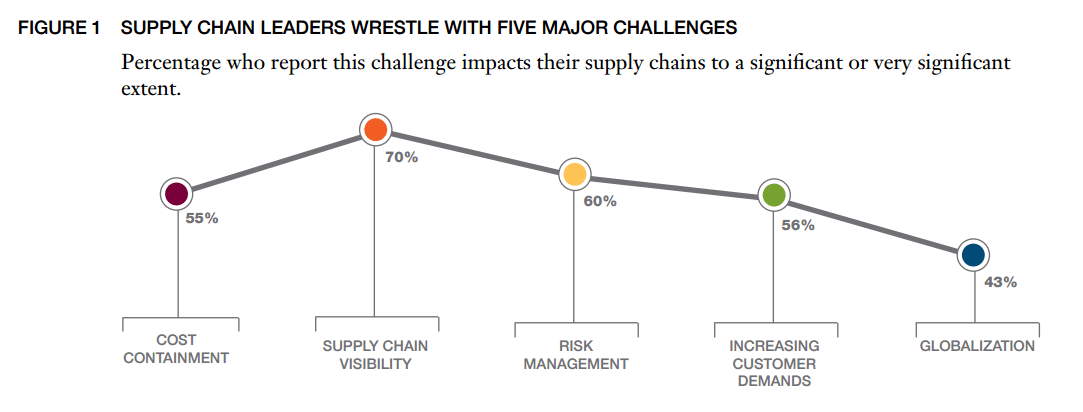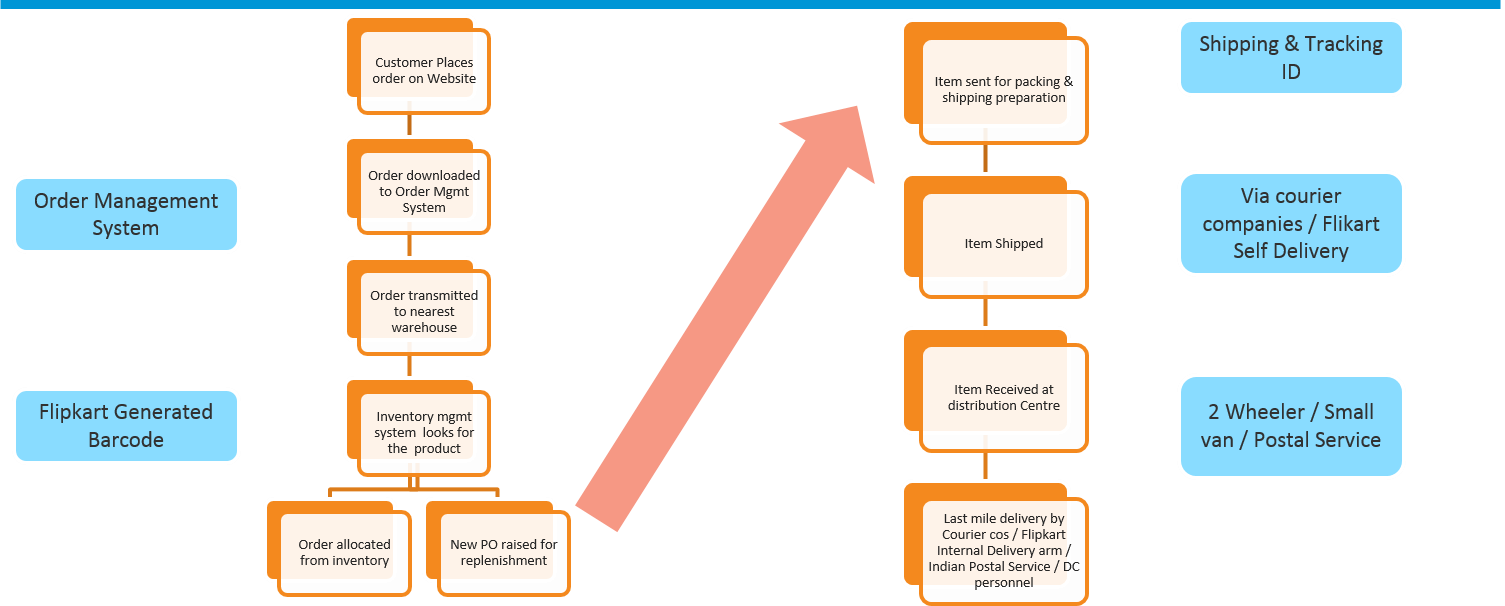PMP Certification Training
- 89k Enrolled Learners
- Weekend/Weekday
- Live Class
From your favorite shopping app, to your home – your chosen product embarks on a long winding journey, across cities, sometimes countries, shuttles between multiple warehouses, before the courier agent delivers it to you. Supply chain management is the story of this journey. Read on.
What is Supply Chain?
Simply put, supply chain is the flow of material, information, money and services from raw material suppliers through factories and warehouses to the end customer. It involves dynamic and constant flow of information, products and funds between different stages and stakeholders.
The customer is the most important and integral part of the supply chain. Neglecting the customer in this chain can cause breakdown of the entire process.
A supply chain that is managed electronically with web technologies is called an eSCM.
Five major challenges of traditional SCM that eSCM addresses
#1 Cost Containment
In traditional supply chains, there were multiple challenges with the cost, because money was spent on the inventory, land, vendors, and more. By bearing all these costs, the company would not be able to make big profits. The only way they could increase the profit was by shifting all the liabilities from the company to the suppliers or the customers. The only option available for this to happen was to embrace eSCM.
#2 Visibility
With eSCM, you can have visibility across the entire supply chain. For instance, if you are a manufacturer of a product, in a traditional supply chain you would not have any visibility across the supply chain but in an E-SCM all you have to do is get on to your laptop and see exactly how materials are flowing. This will enable you to plan and process orders in an efficient manner.
#3 Risk Management
The risk factor in a traditional SCM was very high because the company was responsible for every single component. However, with an eSCM, risk factors are completely mitigated since most of the components in the supply chain are outsourced either to customers or vendors.
#4 Increasing Customer Demand
Due to the versatility provided by eSCM, customer demands have also increased. eSCM provides you the framework that supports communication and collaboration between the customer and other entities. Not so long ago there was a company called Borders, which was one of the biggest book seller in Europe. Then Amazon came along and brought with it the concept of eSCM that provided the same books at a much lower costs. The customer could now track the shipment end-to-end. Today, Amazon is the world’s largest seller of books.
#5 Globalization
With the advent of globalization eSCM can enable you to practically receive orders from anywhere in the world. Globalization has increased both the number of opportunities as well as risk for the companies. The global network is more complex as there is increase in the number of suppliers and customers. This has brought with it a challenge of scale and volume.

Flipkart eSCM
Let’s now understand this with an example from Flipkart, India’s leading online marketplace.

Usually, people go on Flipkart, compare products and earmark what they want to buy. Once you place the order, an order number is generated along with a tag for internal Flipkart tracking. This order number gets converted into a bar code when it enters the order management system of IT interface. This order management system checks for the product in the nearest warehouse among all of the vendors. If Flipkart finds the product in the nearest warehouse then it has to just tag it to that order and then send across to the logistics team for delivery to the customer’s preferred address.
What If they don’t find the product in the nearest warehouse? They would then try to find it in the other warehouses, if they still don’t find the product, a new PO (Purchase Order) would be raised.
The next phase of supply chain is the logistics. So you know that when you place an order, the pin code is mandatory. Based on the customer’s pin code, the orders get segregated into different tiers and the customer gets an estimated delivery time. Once the courier team gets the product from the seller, it becomes easy for them to deliver it to the customer. The courier company notifies Flipkart about the delivery of the product and then Flipkart closes your order by sending an email.
Flipkart and Amazon: Similar, yet so different
Flipkart is a marketplace eSCM where buyers and sellers meet, negotiate and strike a deal. Here, Flipkart is just a facilitator whereas Amazon is an inventory guided eSCM because Amazon has its own warehouse.

Since Flipkart operates on a marketplace model, it would have a more exhaustive product line products compared to Amazon. Inventory holding costs would be naturally high for Amazon because it is incurred by the company. Flipkart has an advantage here since inventory cost is incurred by the vendor. Also, the stock-out chances would be minimal for Flipkart due to their large pool of vendors. However, Amazon has the advantage of faster delivery time because it has its own warehouse. Either ways, electronic SCM makes them tick.
Got a question for us? Please mention it in the comments section and we will get back to you.
Related Posts:
 Thank you for registering Join Edureka Meetup community for 100+ Free Webinars each month JOIN MEETUP GROUP
Thank you for registering Join Edureka Meetup community for 100+ Free Webinars each month JOIN MEETUP GROUPedureka.co
can i have a sample class of the course
Hi Vishank,
Thank you for reaching out to us.
You can get in touch with us for further clarification by contacting our sales team on +91-8880862004 (India) or 1800 275 9730 (US toll free). You can mail us on sales@edureka.co.
Hi thus us the self paced
Hi Surya,
Thank you for reaching out to us.
The course mentioned above, i.e. Supply Chain Management course is a live, instructor-led online course and not a self-paced course.
You can get in touch with us for further clarification by contacting our sales team on +91-8880862004 (India) or 1800 275 9730 (US toll free). You can mail us on sales@edureka.co.